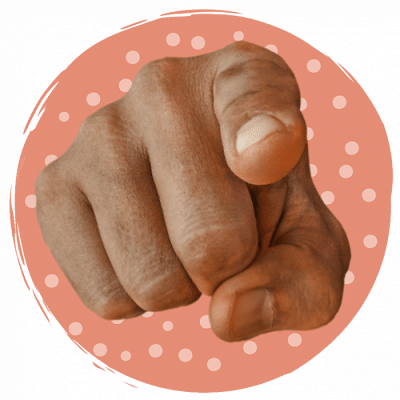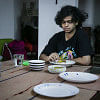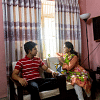The Consequences of Authoritarian Parenting

"I have always been shut down [by my parents] for my ideas or even the smallest of my wishes, be it my career choice or going out with my friends. So, I developed a trait to not open up at all. This is something I carry in all my relationships. The bond that I always crave from them makes me emotionally weak in all aspects of my life," shares Afra Ibnat, a Viqarunnisa Noon School and College graduate, when asked if their parents are their "go-to" people.
Elsewhere, high school graduate Raisa Shams*, currently preparing for university, mentions, "Since I wasn't allowed to socialise much in childhood, I'm very socially awkward. The constant anxiety makes it extremely difficult for me to connect with people in real life. Even the bare minimum that's required to survive, like staying connected with classmates or co-workers, it's all very difficult for me."
As I interacted with more and more people of this age spectrum, I noticed a hint of anger and indignation in their story was obvious. However, this anger, induced by strict parenting, was shrouded by something subtle yet recurrent among this generation — a painful disappointment and resentment.
The style of authoritarian parenting insists on unquestionable obedience from the child, which is attained through psychological tools like shaming, threats or other modes of mental and physical punishment. Parents, who knowingly or unknowingly fall in this category, often tend to be extremely unresponsive and offer constant negative feedback to their kids' actions.
A key tool for authoritarian parenting is fear. It is the fear of getting harsh punishment, reproof or the idea of letting the parents down. The cold and unresponsive behaviour ends up isolating the child from the parents. When parents are being unsupportive, children often cannot trust their parents enough to affiliate them into their personal lives, and consider them to be more of an "authority", rather than someone they can confide in.
"I don't try to be emotionally close to them anymore," comments *Raisa Zaman, when speaking of her parents. "I shut them off a long time ago, but it's hard. I feel like we are biologically engineered to crave for our parents' love and affection. I have mentally disowned my parents to some extent. I don't crave for their approval anymore."
Children with strict parents often live in a constant fixation of getting everything right and face difficulty dealing with failure in future.
"I always have to have everything in my life in control so that I don't fail. Unplanned endeavours make me panic badly. It has made me an over-thinker, to be honest. I'm always in fear of failing," adds Afra.
Children who have grown up in a household following authoritarian parenting face challenges regarding intimacy in other aspects of life as well. Fear of attachment, constant anxiety, emotional desperation, and trust issues make their personal relationships very complex.
"The affection and attention that I'm supposed to get from my parents, I think I look for in other relationships. My expectations from those people get crushed sooner or later and I end up losing those relationships," explains Afra. "I realise that they're not obligated to show me the affection my parents won't, but it's hard for me to accept."
In unfortunate cases where parents are abusive, the situation can also get fatal. Raisa elaborates, "I have observed that I probably associate abuse with love. I have a hard time saying 'no', and I struggle to enforce boundaries. I don't know what a healthy relationship looks like. So, I end up in abusive relationships and I stay there no matter how scary it gets."
Strict parents expect unquestionable compliance from their kids. This results in kids having to conceal their actions from their parents constantly, which develops into a compulsive habit at one point.

Fearing their parents' unsupportive reactions, a lot of these kids consider lying to their parents about their plans outside home, rather than choosing to tell them the truth.
"Since I'm hiding stuff from them, being out of home means I'm panicking all the time," says Afra. "They'll constantly call me to check up on me and I have to pay attention to their tone and voice to understand their mood and what reaction to expect at home. This results in constant anxiety the entire time."
"When I was a child, I was always paranoid whenever I was out," continues Raisa. "Fearing how my parents would be like when I got home and whether I would get beaten up. I spent my entire childhood in fear and paranoia of what my parents would do to me. Now, I don't update my parents about my life anymore."
Multiple research papers on parenting styles suggest that adolescents with strict parents have a twisted sense of authority and are habituated to being told what to do. Research also shows that such adolescents, especially females, are less capable of taking decisions when given the opportunity.
Irfat Sharmin, a recent BUET graduate working in a private firm, shares how this behaviour has affected her. She explains, "Ever since childhood, I had things done or chosen for me rather than getting to make the calls myself. Naturally, in university, I hesitated taking control over something or reaching a decision even when I'm pretty certain of it. Even at work, I struggled with making decisions confidently without assistance or guidance."
Clinical psychologist at Square Hospital, Dr Sharmin Haque suggests that authoritarian parenting often pushes a kid towards acute depression and other mental disorders.
"I've come across a lot of cases with authoritarian parents where the child considers their life to be meaningless. As the age approaches 16 to 17, the symptoms gradually grow into that of a borderline personality disorder," she mentions.
She also states that the suppressive anger among kids due to constant negative feedback, harsh discipline, and non-stop dominant behaviour from their parents may often lead to serious outbursts.
Rezwana Saima, an undergraduate student from Dhaka University, feels that her anger originates from the repression she faces from her parents.
She says, "At times I feel an uncontrollable rage towards my parents, especially my mother. I think I deserve some freedom as an adult which my parents refuse to acknowledge, owing to their beliefs and general sense of over-protectiveness. I understand my mom's concern but I keep missing out on so many experiences, it just feels unfair."
However, "authoritative parenting" as opposed to authoritarian one, brings out the best in a child according to Dr Sharmin Haque.
"Authoritative parents approach parenting with warmth, sensitivity and consequently develop a sense of limit and precaution within the child. With healthy self-esteem and a positive sense of freedom, these kids have no trouble coping up with the outside world once they grow up," she explains.
As irrational and absurd a child's rebellious behaviour, outrage, and choked desolation might seem to some parents, it is vital they realise how excruciating it is for the kids to feel anger and resentment towards someone who is supposed to be their closest and most trusted allies.
*Names have been changed for privacy
Suggest Ifti depressing Japanese literature at [email protected]

 For all latest news, follow The Daily Star's Google News channel.
For all latest news, follow The Daily Star's Google News channel. 








Comments